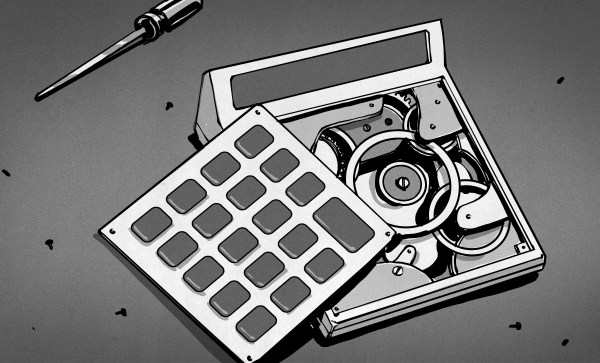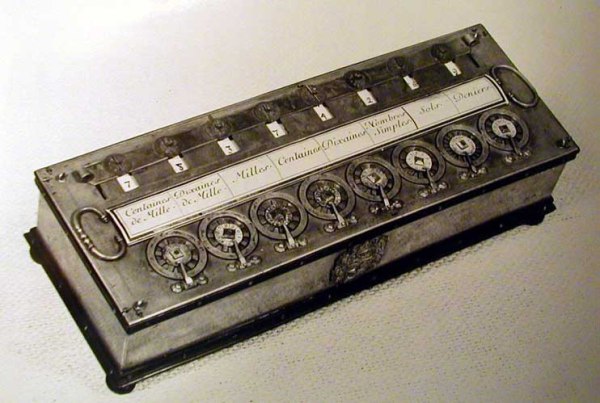Blaise Pascal is known for a number of things, but we remember him best for the Pascaline, an early mechanical calculator. [Chris Staecker] got a chance to take a close look at one, which is quite a feat since there were only about 20 made, and today we only know where nine of them wound up.
This Pascaline was lost for many years, and turned up in an antique store, where they thought it was a music box of some kind. The recent owner passed away, and now this machine is going to go up for auction, probably for more than we can afford. While he wasn’t able to handle the antique, he has plenty of knock-offs that were made back when people actually used them, which wasn’t that long ago. One of these is transparent, so you can see the mechanism inside.
The idea is to use the wheels like an old-fashioned phone dial to add counts to an output wheel. A linkage moves the next input wheel every time the current output wheel passes nine. Of course, if you have a multi-digit carry, it might take a little more elbow grease than just flipping the dial one normal position.
Continue reading “Examining The First Mechanical Calculator”













